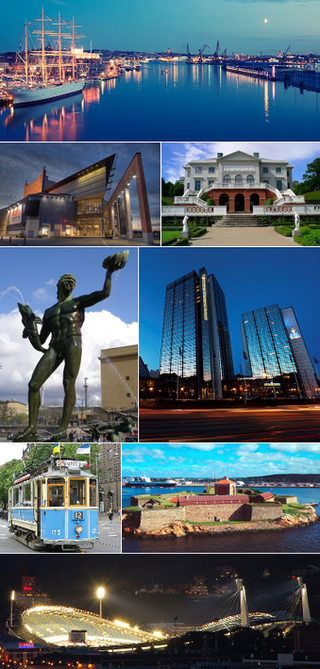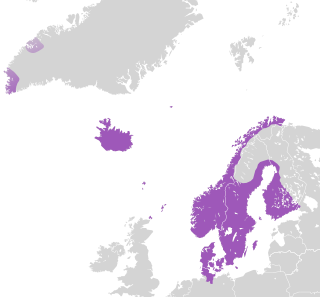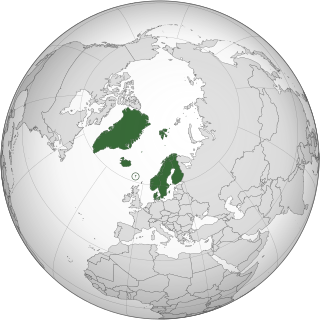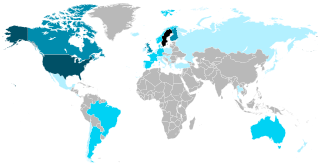| Years in Sweden: | 1696 1697 1698 1699 1700 1701 1702 |
| Centuries: | 16th century · 17th century · 18th century |
| Decades: | 1660s 1670s 1680s 1690s 1700s 1710s 1720s |
| Years: | 1696 1697 1698 1699 1700 1701 1702 |


Events from the year 1699 in Sweden
| Years in Sweden: | 1696 1697 1698 1699 1700 1701 1702 |
| Centuries: | 16th century · 17th century · 18th century |
| Decades: | 1660s 1670s 1680s 1690s 1700s 1710s 1720s |
| Years: | 1696 1697 1698 1699 1700 1701 1702 |


Events from the year 1699 in Sweden
| | This section needs expansion. You can help by adding to it. (June 2015) |
| | This section needs expansion. You can help by adding to it. (June 2015) |
| | This section needs expansion. You can help by adding to it. (June 2015) |

Alfred Bernhard Nobel was a Swedish chemist, engineer, inventor, businessman, and philanthropist. He is known for creating dynamite as well as having bequeathed his fortune to establish the Nobel Prize. He also made several important contributions to science, holding 355 patents in his lifetime. Nobel's most famous invention was dynamite, an explosive using nitroglycerin; it was patented in 1867.

Gothenburg is the capital of Västra Götaland County in Sweden. It is the second-largest city in Sweden, after the capital Stockholm, and the fifth-largest in the Nordic countries. It is situated by the Kattegat on the west coast of Sweden, with a population of approximately 600,000 in the city proper and about 1.1 million inhabitants in the metropolitan area. The city's population increased by 9,292 during 2022.

The krona is the official currency of the Kingdom of Sweden. Both the ISO code "SEK" and currency sign "kr" are in common use; the former precedes or follows the value, the latter usually follows it but, especially in the past, it sometimes preceded the value. In English, the currency is sometimes referred to as the Swedish crown, as krona means "crown" in Swedish. The Swedish krona was the ninth-most traded currency in the world by value in April 2016.

The Kalmar Union was a personal union in Scandinavia, agreed at Kalmar in Sweden, that from 1397 to 1523 joined under a single monarch the three kingdoms of Denmark, Sweden, and Norway, together with Norway's overseas colonies.

Malmö is the largest city in the Swedish county of Scania (Skåne). It is the third-largest city in Sweden, after Stockholm and Gothenburg, and the sixth-largest city in the Nordic region, with a municipal population of 357,377 in 2022. The Malmö Metropolitan Region is home to over 700,000 people, and the Öresund Region, which includes Malmö and Copenhagen, is home to 4 million people.

The Nobel Prizes are five separate prizes that, according to Alfred Nobel's will of 1895, are awarded to "those who, during the preceding year, have conferred the greatest benefit to humankind." Alfred Nobel was a Swedish chemist, engineer, and industrialist most famously known for the invention of dynamite. He died in 1896. In his will, he bequeathed all of his "remaining realisable assets" to be used to establish five prizes which became known as "Nobel Prizes". Nobel Prizes were first awarded in 1901.

Swedish is a North Germanic language spoken predominantly in Sweden and in parts of Finland. It has at least 10 million native speakers, the fourth most spoken Germanic language and the first among any other of its type in the Nordic countries overall.

Scandinavia is a subregion in Northern Europe, with strong historical, cultural, and linguistic ties between its constituent peoples. Scandinavia most commonly refers to Denmark, Norway, and Sweden. It can sometimes also refer more narrowly to the Scandinavian Peninsula. In English usage, Scandinavia is sometimes used as a synonym for Nordic countries. Iceland and the Faroe Islands are sometimes included in Scandinavia for their ethnolinguistic relations with Sweden, Norway and Denmark. While Finland differs from other Nordic countries in this respect, some authors call it Scandinavian due to its economic and other similarities.

The Great Northern War (1700–1721) was a conflict in which a coalition led by the Tsardom of Russia successfully contested the supremacy of the Swedish Empire in Northern, Central and Eastern Europe. The initial leaders of the anti-Swedish alliance were Peter I of Russia, Frederick IV of Denmark–Norway and Augustus II the Strong of Saxony–Poland–Lithuania. Frederick IV and Augustus II were defeated by Sweden, under Charles XII, and forced out of the alliance in 1700 and 1706 respectively, but rejoined it in 1709 after the defeat of Charles XII at the Battle of Poltava. George I of Great Britain and the Electorate of Hanover joined the coalition in 1714 for Hanover and in 1717 for Britain, and Frederick William I of Brandenburg-Prussia joined it in 1715.

The Nobel Prize in Physics is a yearly award given by the Royal Swedish Academy of Sciences for those who have made the most outstanding contributions for humankind in the field of physics. It is one of the five Nobel Prizes established by the will of Alfred Nobel in 1895 and awarded since 1901, the others being the Nobel Prize in Chemistry, Nobel Prize in Literature, Nobel Peace Prize, and Nobel Prize in Physiology or Medicine. Physics is traditionally the first award presented in the Nobel Prize ceremony.

Carl XVI Gustaf is King of Sweden. He ascended the throne on the death of his grandfather, Gustaf VI Adolf, on 15 September 1973.

The Sweden men's national football team represents Sweden in men's international football and it is controlled by the Swedish Football Association, the governing body of football in Sweden. Sweden's home ground is Friends Arena in Solna and the team is coached by Janne Andersson. From 1945 to late 1950s, they were considered one of the greatest teams in Europe.

Zlatan Ibrahimović is a Swedish former professional footballer who played as a striker. Ibrahimović is renowned for his acrobatic strikes and volleys, technique and ball control. He is regarded as one of the greatest strikers of all time and is one of the most decorated footballers in the world, having won 34 trophies in his career. He has scored over 570 career goals, including more than 500 club goals, and has scored in each of the last four decades.

The Pirate Bay is an online index of digital content of entertainment media and software. Founded in 2003 by Swedish think tank Piratbyrån, The Pirate Bay allows visitors to search, download, and contribute magnet links and torrent files, which facilitate peer-to-peer, file sharing among users of the BitTorrent protocol.

Sweden, formally the Kingdom of Sweden, is a Nordic country located on the Scandinavian Peninsula in Northern Europe. It borders Norway to the west and north, Finland to the east, and is connected to Denmark in the southwest by a bridge–tunnel across the Öresund.

The Swedish Empire was the period in Swedish history spanning much of the 17th and early 18th centuries during which the country became a European great power that exercised territorial control over much of the Baltic region. The beginning of the period is usually taken as the reign of Gustavus Adolphus, who ascended the throne in 1611, and its end as the loss of territories in 1721 following the Great Northern War.

The Nobel Prize in Literature is a Swedish literature prize that is awarded annually, since 1901, to an author from any country who has, in the words of the will of Swedish industrialist Alfred Nobel, "in the field of literature, produced the most outstanding work in an idealistic direction". Though individual works are sometimes cited as being particularly noteworthy, the award is based on an author's body of work as a whole. The Swedish Academy decides who, if anyone, will receive the prize. The academy announces the name of the laureate in early October. It is one of the five Nobel Prizes established by the will of Alfred Nobel in 1895. Literature is traditionally the final award presented at the Nobel Prize ceremony. On some occasions, the award has been postponed to the following year, most recently in 2018 as of July 2023.

The Nordic countries are a geographical and cultural region in Northern Europe and the North Atlantic. It includes the sovereign states of Denmark, Finland, Iceland, Norway and Sweden; the autonomous territories of the Faroe Islands and Greenland; and the autonomous region of Åland.

The Nobel Prize in Chemistry is awarded annually by the Royal Swedish Academy of Sciences to scientists in the various fields of chemistry. It is one of the five Nobel Prizes established by the will of Alfred Nobel in 1895, awarded for outstanding contributions in chemistry, physics, literature, peace, and physiology or medicine. This award is administered by the Nobel Foundation, and awarded by the Royal Swedish Academy of Sciences on proposal of the Nobel Committee for Chemistry which consists of five members elected by the Academy. The award is presented in Stockholm at an annual ceremony on 10 December, the anniversary of Nobel's death.

Swedes are an ethnic group native to the Nordic region, primarily their nation state of Sweden, who share a common ancestry, culture, history and language. They mostly inhabit Sweden and the other Nordic countries, in particular Finland where they are an officially recognized minority, with a substantial diaspora in other countries, especially the United States.